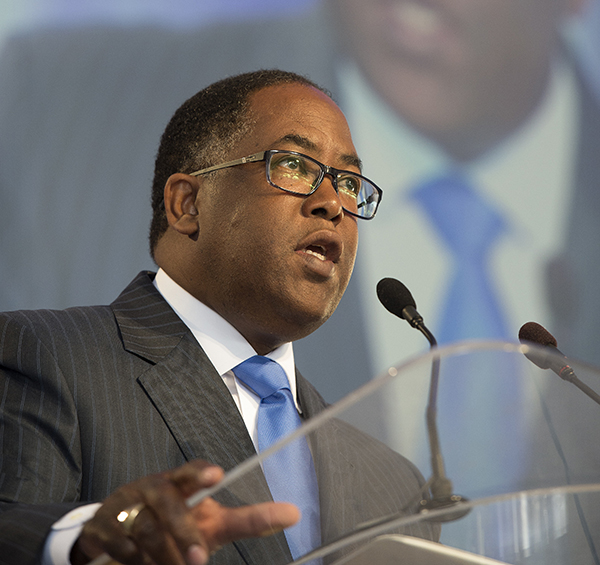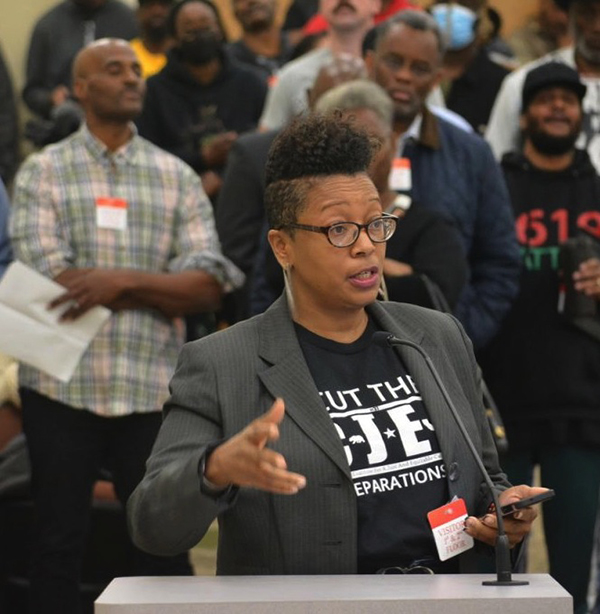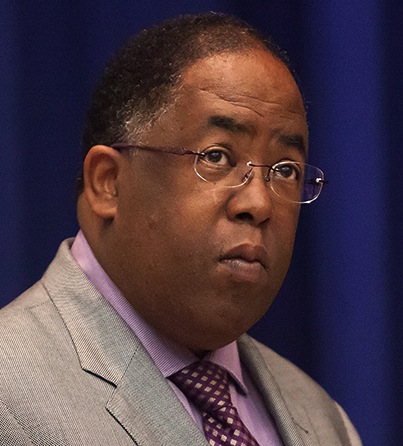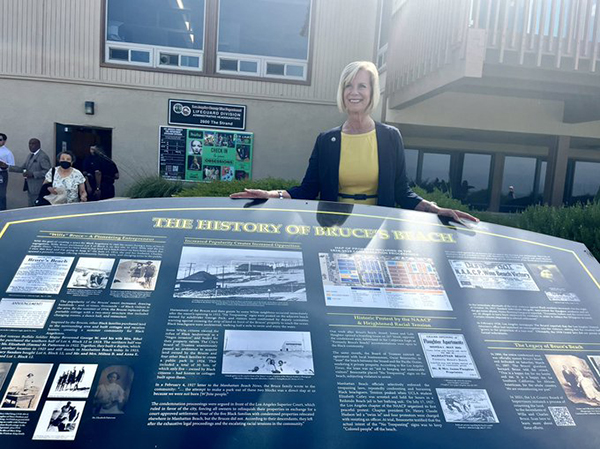Wave Wire Services
LOS ANGELES — Attorneys for former City Councilman Mark Ridley-Thomas have filed a notice of forthcoming appeal to the 9th Circuit Court challenging his conviction and sentence for voting in support of county contracts that would favor USC while accepting benefits for his son from the university.
The notice was filed Sept. 11 with the U.S. 9th Circuit Court of Appeals, setting the stage for appellate arguments that could go all the way to the U.S. Supreme Court. The substantive brief from attorneys could take months to prepare.
However, the first post-sentencing issue to be resolved is whether the judge overseeing Ridley-Thomas’ case in Los Angeles federal court will grant the longtime politician bail pending appeal, allowing him to avoid the start of his prison sentence. Attorneys are expected to file their motions in the coming weeks.
At his sentencing hearing last month, Ridley-Thomas was ordered to report to federal prison on Nov. 13 — one week after his 69th birthday — to begin serving a term of three years and six months.
“Immediately after the jury’s verdict and again following his Aug. 28 sentencing hearing, Ridley-Thomas’ defense counsel made clear that he intended to appeal both the jury’s verdict and the sentence imposed,” Alyssa Bell, a member of Ridley-Thomas’ appellate team, said in a statement.
Bell said the lawyers who handled the former city councilman’s 12-day trial in downtown Los Angeles “laid the groundwork for what we believe to be an exceptionally strong appeal. We are already examining and analyzing several potential grounds that could result in reversal of Ridley-Thomas’ convictions.”
Those grounds were outlined in a Rule 29 motion, in which defense attorneys in June asked U.S. District Judge Dale S. Fischer to acquit the defendant, alleging that the government failed to provide sufficient evidence to support the jury’s guilty verdicts.
Attorneys for Ridley-Thomas argued during the hearing that prosecutorial misconduct, misstatements of the law and other issues during the trial ultimately deprived him of his rights.
Among other things, the defense argued that there was no evidence of a quid pro quo arrangement between the politician and Marilyn Flynn, a former head of the USC School of Social Work, who pleaded guilty to a bribery charge in the case.
The defense insisted there was no showing that Ridley-Thomas performed “an official act” while on the Board of Supervisors in favor of an expansion of a Telehealth contract with the county Department of Mental Health that prosecutors claim could have brought the social work school potentially millions of dollars in new revenue.
Ridley-Thomas’ lawyers also sought to show that the government’s chief case investigator, an FBI agent, made false statements to the jury during three days on the stand touching on nearly every factual issue presented.
Fischer denied the motion and went forward with sentencing last month.
Berkeley Law Dean Erwin Chemerinsky, who is part of the Ridley-Thomas’ appeals team and regularly argues appellate cases, said that “we look forward to presenting our case to the Ninth Circuit. There are several grounds that we believe could warrant a reversal of his convictions or, at a minimum, a new trial.”
A spokesman for the U.S. Attorney’s Office declined comment.
In addition to incarceration, Ridley-Thomas was ordered to serve three years on supervised release once he completes his prison time. He also must pay an assessment and fines of $30,700.
Ridley-Thomas spoke during his sentencing hearing, denying he did anything illegal. He apologized to his family and constituents for causing the “perception that I deviated from proper conduct.” He said the actions he took that resulted in his conviction were “ill-advised, but not illegal.”
The former state legislator, city councilman and county supervisor showed no reaction as the sentence was imposed.
Federal prosecutors had asked the judge to sentence Ridley-Thomas to six years behind bars, writing in a sentencing memorandum that he took part in “a shakedown.”
Ridley-Thomas was convicted March 30, while he was a suspended member of the L.A. City Council, on single counts of conspiracy, bribery, honest services mail fraud and four counts of honest services wire fraud, stemming from his time serving on the county Board of Supervisors.
Jurors, who reached their verdicts on their fifth day of deliberations in Los Angeles federal court, acquitted him of a dozen fraud counts.
Flynn, an 84-year-old former dean of the social work school at USC who pleaded guilty to bribing Ridley-Thomas, was sentenced to 18 months home confinement and ordered to pay a $150,000 fine.
Federal prosecutors based their case on a long string of emails and letters they say showed that Ridley-Thomas “used his publicly provided privileges to monetize his elected office and demand benefits for his son,” according to the U.S. Attorney’s Office.
Evidence showed that $100,000 from Ridley-Thomas’ campaign committee account was quietly funneled through USC to a nonprofit his son Sebastian was spearheading called Policy, Research & Practice. Prosecutors said Flynn arranged the transfer to please Ridley-Thomas.
Ridley-Thomas served on the Los Angeles City Council from 1991-2002, then was a member of the Assembly and state Senate before being elected to the powerful county Board of Supervisors in 2008, serving until 2020, when he returned to the City Council.












